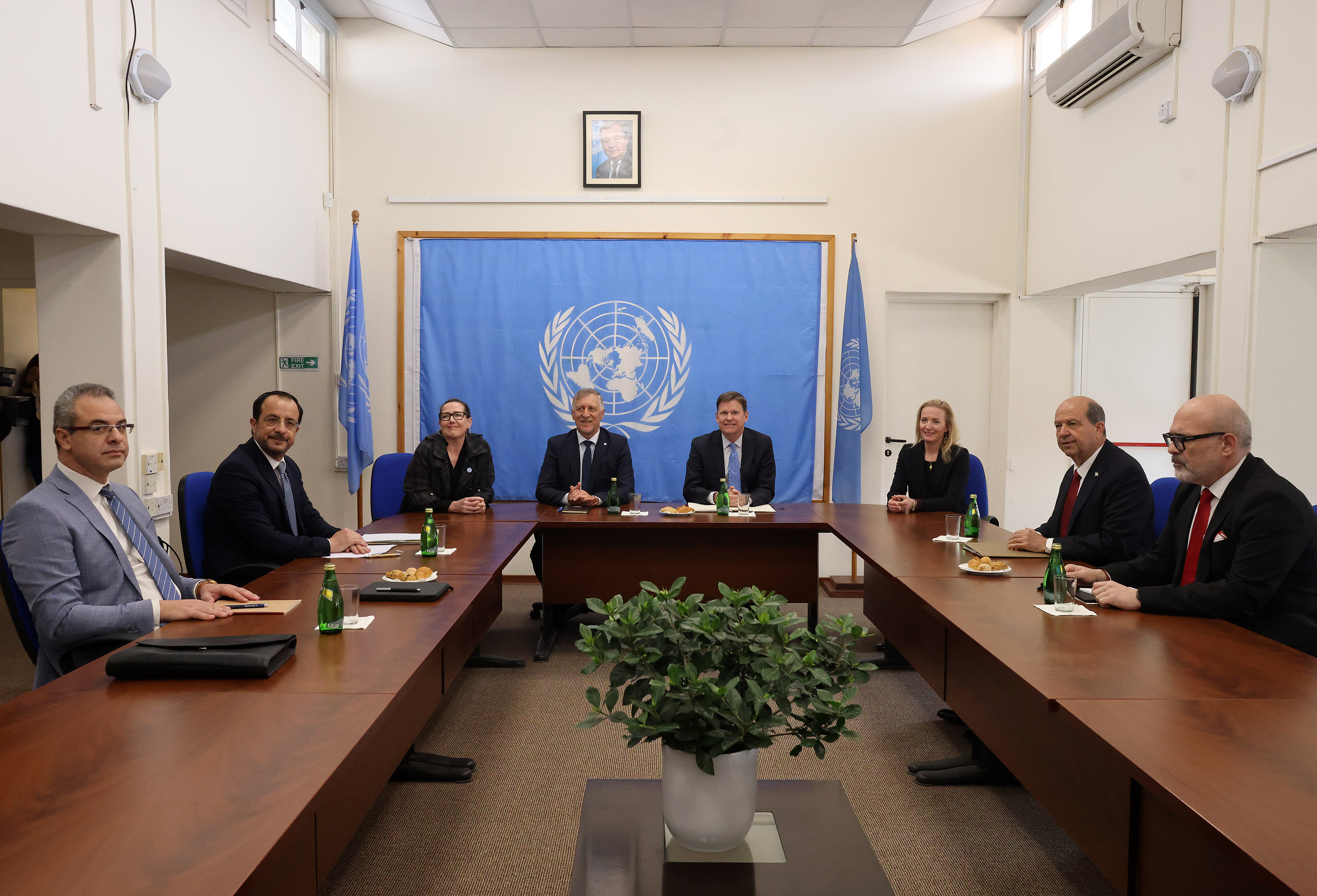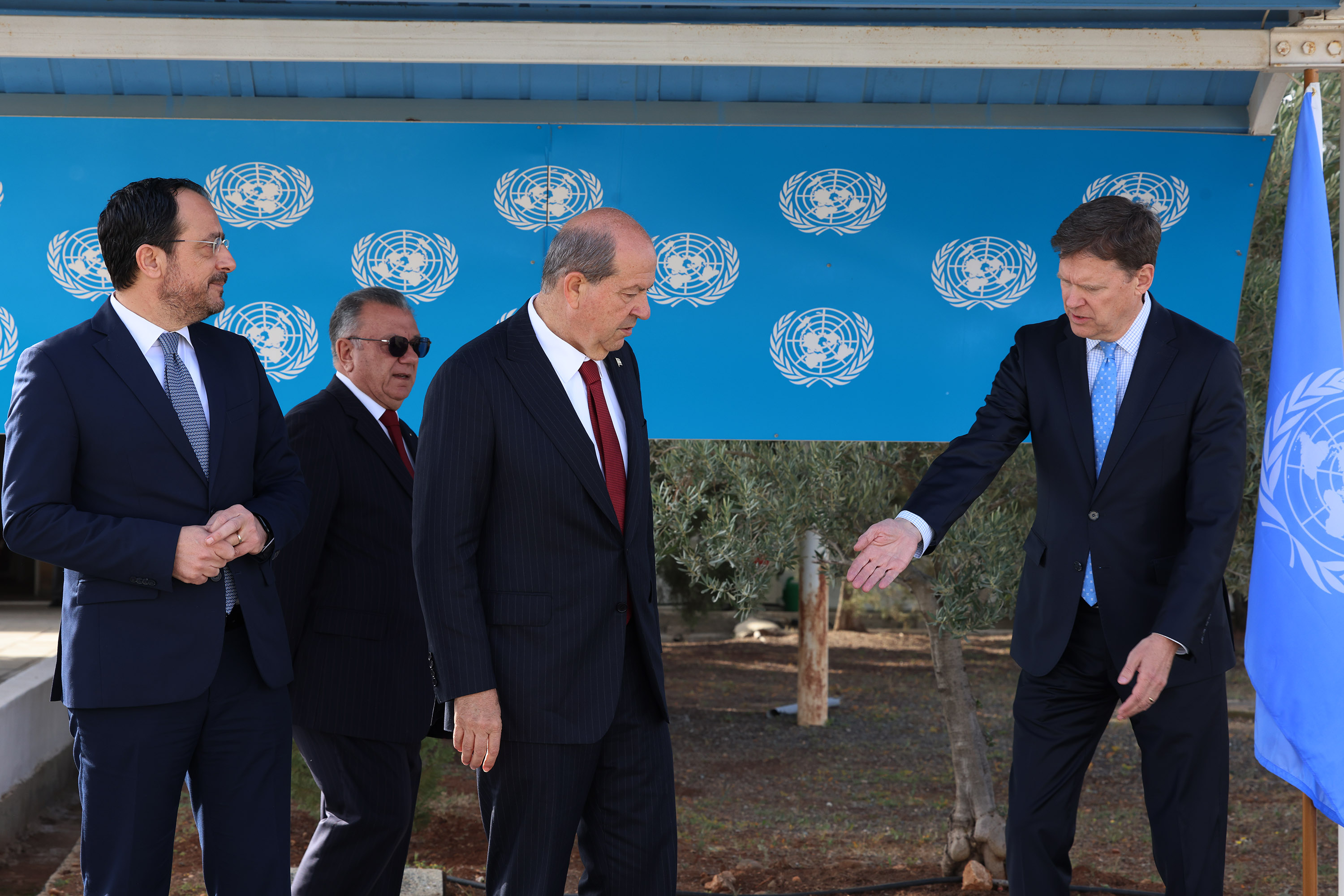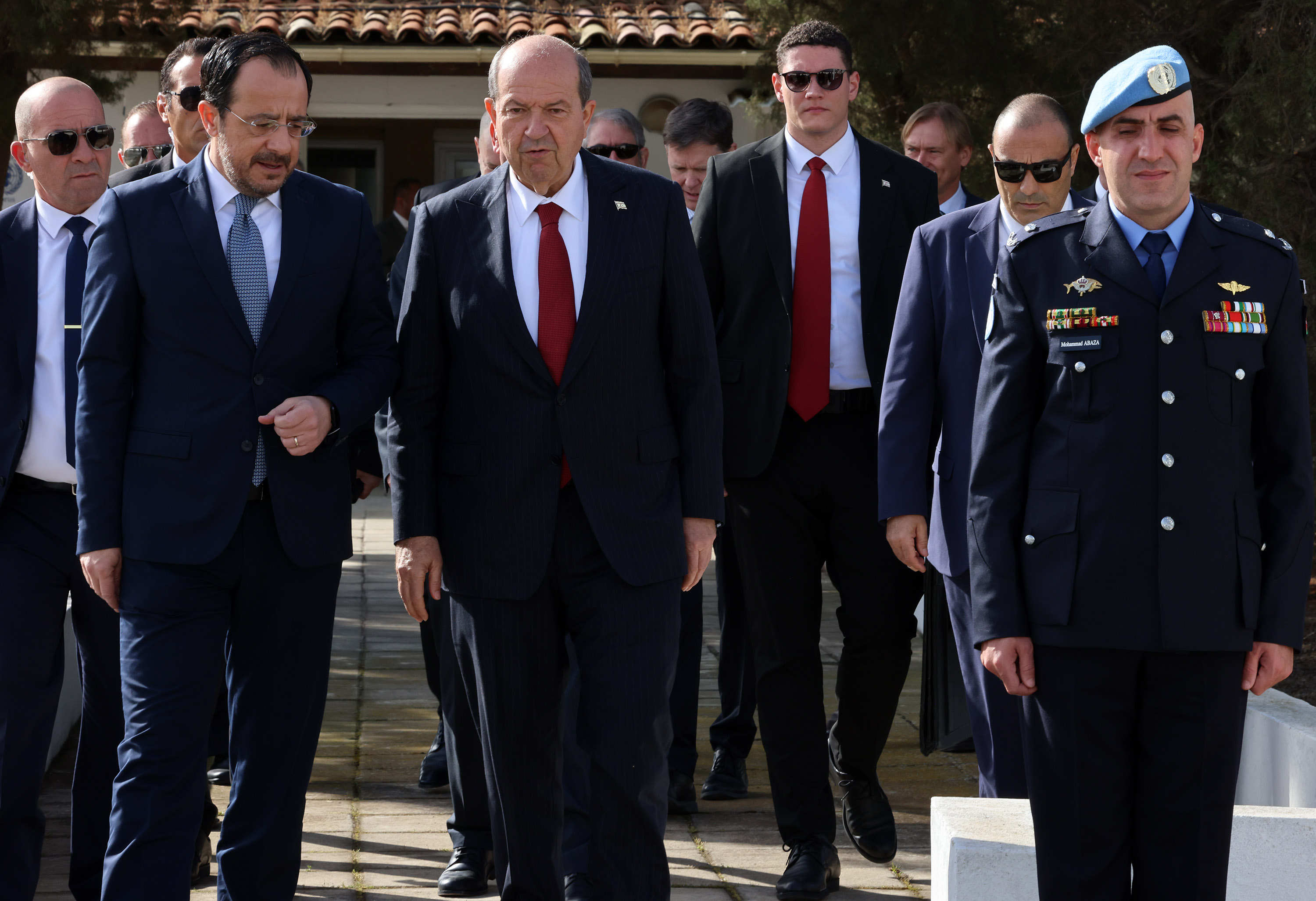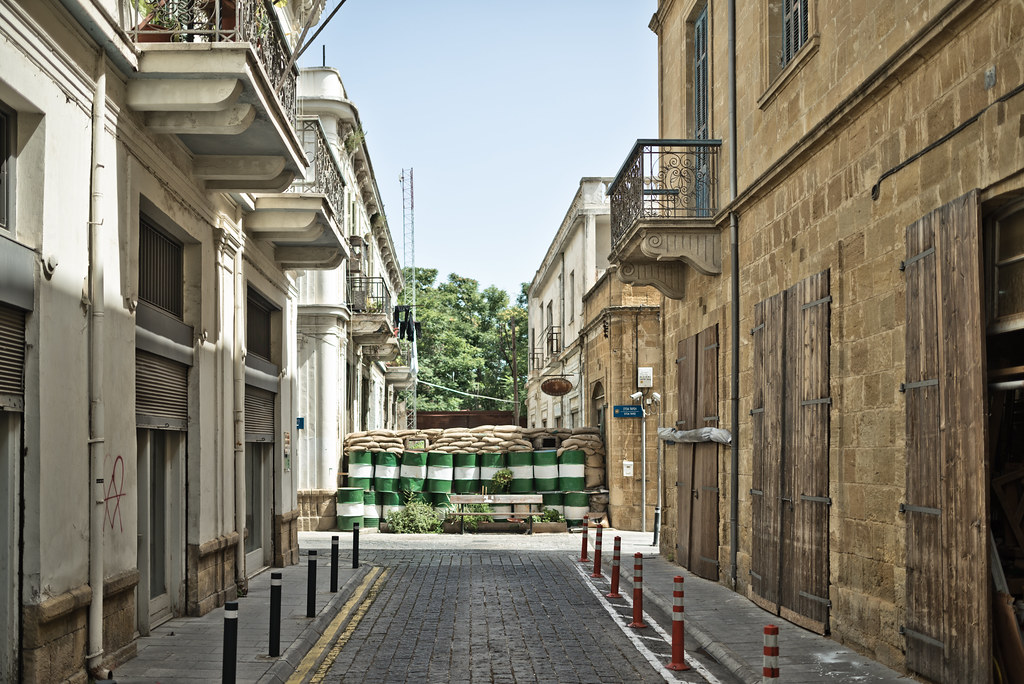Wednesday’s meeting with Turkish Cypriot leader Ersin Tatar was “yet another positive step” with progress including youth issues, demining and restoration of cemeteries, President Nikos Christodoulides said after the meeting.
Progress, he said, was made on four out of six topics, while Tatar announced that they would be meeting again before April 20.
The UN issued a statement saying the leaders had agreed to establish a Technical Committee on Youth, to discuss demining, that the Technical Committee on Environment would work on initiatives related to the environment and climate change and would continue discussions on crossing points and solar energy in the buffer zone. The Technical Committee on Cultural Heritage, meanwhile, would be tasked to work on the restoration of cemeteries
“We have positive results today,” the president said.
He added that “we are pressing forward” and that “we have started implementing what we promised the [UN] secretary-general.”
Christodoulides said the government was waiting for the announcement of the appointment of an UN envoy, “so that by the next meeting we can achieve the great aim which is no other than the resumption of talks.”
In a joint statement after the meeting, the UN said the leaders “met at their own initiative to follow up on the Geneva informal broader format meeting under the auspices of the secretary-general.”

“The two leaders agreed to establish a Technical Committee on Youth and provide by 15 April to the United Nations a list of members. They agreed that the committee would have 12 members from each side and that all would be under 35 years of age. They also endeavoured to aim for gender parity,” the UN added.
“The two leaders agreed that the issue of demining would be discussed at the level of the Greek Cypriot negotiator and the Turkish Cypriot special representative and that they would exchange information on a proportional number of suspected hazardous areas from each.”
The UN said the leaders had also agreed the Technical Committee on Environment would work on initiatives related to the environment and climate change, including the impacts on mining areas, and that the Technical Committee on Cultural Heritage would be tasked to work on the restoration of cemeteries.
It added that “on crossing points and solar energy in the buffer zone, they had a constructive exchange and the leaders tasked their representatives to continue discussions of the issues, with the view to finding a mutually acceptable resolution.”
After the meeting, Tatar announced a new meeting before April 20.
“We are positive, we want to achieve things, and I hope in time we will be able to,” Tatar said.

“My friend Nikos has his own principles, I have my own principles, and what is important is that we are able to have an exchange of views so that we can achieve things for both Turkish Cypriots and Greek Cypriots.”
It is important “to solve it in a reasonable manner”, he added.
Speaking on return to the presidential palace, Christodoulides went into more detail and referred to the issues included in the UN statement.
The issues in which there was “progress but no outcome” were the crossing points, for which talks will continue, and energy, where “there are some demands that cannot be accepted by our side, as they are outside the framework set by the EU, which has expressed an interest in supporting the effort financially.”
Christodoulides said he raised two other issues on Wednesday, namely the implementation of everything that had been agreed on regarding Pyla and some demands put forward by the Maronite community, both of which will be examined.
“We know where we want to go, we know how to get there and the effort continues,” he added.
The president said any confidence-building measures should support the effort for a Cyprus settlement and could not be used to back arguments for two states. “This cannot be accepted,” he stressed.
Regarding the crossing points, Christodoulides said he explained the importance of the Pyroi-Athienou and Kokkina crossing points, the Greek Cypriot side presented maps and discussions will continue “on the level of negotiators”.
Christodoulides said he did not want to speak on behalf of Tatar, however he pointed out that this discussion was better than the last.
He added that he was not aware how Tatar would proceed regarding the Maronite villages, but did point out that for many issues it was necessary to obtain consent from Turkey and the Turkish army.
Referring to the upcoming appointment of a UN envoy, Christodoulides said there were clarifications given why someone should work exclusively on the issue and a result is expected in July.
“This is what we conveyed to the UN and I must say that the UN also understand the importance. The UN secretary-general was present in Geneva, we agreed some things with the UN secretary-general, at the end of July this meeting will happen again and there must be results,” he added.
Wednesday’s meeting was the first after last month’s expanded meeting in Geneva.
Speaking on departure from the presidential palace for the venue and asked whether he was optimistic, Christodoulides said he would be “certainly optimistic” if there was a response from the Turkish Cypriot side.
The meeting was held at the residence of the UN secretary-general’s special representative in Cyprus Colin Stewart, at Nicosia airport in the buffer zone.
Stewart welcomed Christodoulides and Tatar and led them to the hall where the meeting took place.
Before the official commencement of the meeting, the two leaders were photographed with Stewart and the three members of the Committee on Missing Persons in Cyprus (CMP), on the occasion of the 1,000th meeting of the committee.






Click here to change your cookie preferences